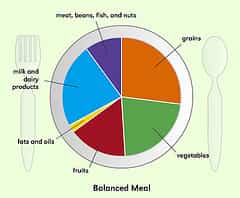Why Best Diet Plan?
Have you ever searched for ‘best diet plan’ on google? Has this search resulted in over a crore of results and left you completely confused? In your frenzy to search for more specific diet plans, you may have tried umpteen diet tips and health tricks and got even more disappointed with the results.
What is the best diet plan for you?

Did you ever wonder what is the best diet plan for me? Let’s simplify to find out what matters for you. Always go to a qualified nutritionist and best dietician who will plan your diet scientifically as per your health needs. The best diet will be one which is carefully planned for your health needs. Are you looking for a weight loss tips or diet plan to lose weight? Are you a vegetarian; worried about finding the best vegetarian diet plan? Or are you looking for the best diet to lose belly fat?
Let’s understand the process a qualified diet expert follows to give you the best diet plan. The best diet is one which helps you lose fat, inches rather than muscle. She should handle your vitamin-mineral deficiencies, ensure a balanced diet planned well as per your health needs. Ultimately, you should meet the dietary goals set to improve your energy levels and your health.
Planning the Best diet process
The most common and correct approach used by a qualified expert is the ABCDEF approach.
A: Anthropometric measurements are taken. This means that the dietitian will check your height, weight, body measurements and body composition (as applicable).
B: Biochemical parameters means that the dietitian will go through your blood tests and lab reports.
C: Clinical status which means that the dietitian will ask you questions to understand what symptoms you face that may impact your nutritional intake or increase nutrition losses. For e.g. Digestive issues like loose motions, constipation, nausea, vomiting and so on.
D: Dietary Assessment means that the dietitian will ask you questions or gather data about your food habits, food allergies, eating pattern. The dietitian usually records your food intake with portions in a 24-hour diet recall. Additional information is collected about your lifestyle, type of exercise and frequency of exercise (if any).
E: Evaluation of the data and interpretation. First, the data is collected, and your current health status is noted both as reported by you and as per blood reports, the dietician will evaluate and decide the right and best diet plan scientifically planned for your health needs.
F: Frequent follow-ups may be required to track and set realistic and measurable outcomes, monitor progress and modify the diet charts and intervention as applicable. The frequency of follow-ups will determine success in adhering to a diet and lifestyle change program. It is important to trust the qualified dietician professional and never to give up on the best results!






